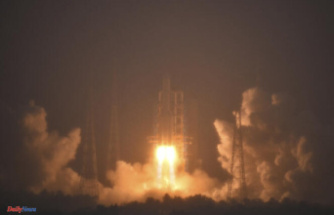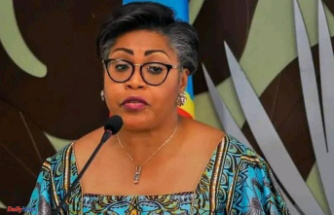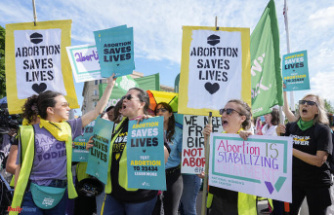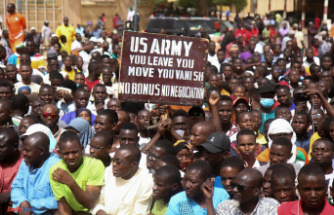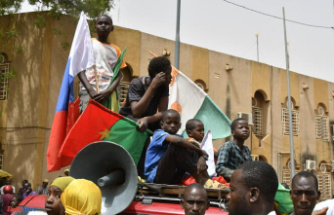"Agriculture is dead", despairs Zakaria Aboueldahab in his fields of wheat and onions in Qalyoubia, 30 km north of Cairo.
"I'm trying to sell my onion crop but I can't find a market, I just want to break even because I don't know if I can pay my next rent," he told AFP. .
There is a market for onions in Egypt, but financing, transport and agricultural infrastructure have changed. As a result, smallholders no longer find themselves there.
Although they occupy only 35% of the agricultural area, farm owners of less than one hectare produce almost half of the crops in Egypt, according to the Food and Agriculture Organization of the United Nations (FAO). ).
- "National duty" -
These small farms, concentrated in the Nile delta in the north, are even the "main producers" of domestic consumption as the large farms focus on export.
According to the sociologist specializing in rurality Saker al-Nour, they almost alone ensure food production in Egypt.
For bread, for example, 60% of the wheat consumed in Egypt is imported, almost entirely from Russia and Ukraine, two markets severely affected by the war. But for the rest, there are small local producers.
"Without the 40% of wheat produced locally", the consequences of the Russian invasion of Ukraine "would have been much worse", Mr. Nour told AFP.
In March, Egypt declared the delivery of local crops a "national duty". In June, they exceeded 3.5 million tonnes, according to the Ministry of Supply, more than half of the objectives for the season, which ends in August, and the equivalent of the entire 2021 season.
For a long time, under the socialist regime of Gamal Abdel Nasser, compulsory deliveries to the State were a pillar of the national economy.
In the 1990s, structural adjustment reforms of capitalist openness swept them away. However, with each crisis, the State returns to it.
"But without the boosts that went with it," notes Mr. Nour: no more subsidized seedlings, pesticides and other fertilizers at bargain prices.
In addition, with the global outbreak of cereal prices after the Russian offensive in Ukraine, one of the last gifts from the state has gone. Before, the latter bought above the market to encourage operators to prefer it to private buyers, but today these inflated prices are still below current historical records.
"I have to reimburse the sellers of pesticides, fertilizers and pay my debts, so if a buyer offers a low price, what can I do?", laments Mr. Aboueldahab.
- Startups and climate change -
Some are trying to get out of the game. By dint of seeing pepper plans multiply in his neighbors and prices fall, Mohamed Abdelmoez has decided to switch to the cultivation of sweet peppers on his farm in al-Fachen, in 150 km south of Cairo.
If many around have thrown in the towel, he has found an unexpected partner: a startup that offers an application to "connect smallholders to the ecosystem", explains to AFP its boss Hussein Aboubakr.
Mozare3, the farmer in Arabic, offers farmers to know their buyer "before they even start plowing" and the selling prices "to protect them", details Mr. Aboubakr.
"Smallholders only have very limited bargaining power" and need to be "protected" because "they have no storage capacity", explains Mr. Nour.
If before the cooperatives were functional, today Mozare3 is an alternative that allows "small farmers to organize themselves and form a block", adds Mr. Aboubakr.
But with 32% of farmers illiterate according to the FAO, non-virtual village associations would be even more effective, warns Mr. Nour.
And with climate change, the effect of which is felt a little more each season, these relays will be essential.
For example, says the expert, there should be a system capable of informing farmers whose plants depend on major weather events in advance.
These tools exist, he says. "Now they need to reach the smallholders."


